- Home
- Andy McNab
On the Rock
On the Rock Read online
About the Book
This is the call he is always ready for. They’ve had word of a planned attack. That’s why he’s back here, opposite some suit who’s trying to tell him what he needs to do. But he knows exactly what’s required.
Four men. Plain clothes. Eyes peeled.
Three targets. Two cases. One car.
Gibraltar isn’t an ideal location. Too many people. Too many blind alleys. But then again, he’s not the terrorist. Who knows what goes through their minds? Well, he will soon. If everything goes to plan.
Contents
Cover
About the Book
Title Page
Chapter One
Chapter Two
Chapter Three
Chapter Four
Chapter Five
Chapter Six
Chapter Seven
Chapter Eight
Chapter Nine
Chapter Ten
Chapter Eleven
About the Author
Also by Andy McNab
Sneak Preview
Copyright
On the Rock
Andy McNab
Chapter One
London: Friday, 4 March 2016, 11.36 a.m.
If you are called to a meeting at Vauxhall Cross, you know it means trouble. Vauxhall Cross is the home of what the press calls MI6 but is in fact the Secret Intelligence Service. People like me call it the Firm.
To the Firm I was a K. I had no idea what K stood for, but government departments like to make things more difficult than they really are.
I had to do the shit jobs that the government needed to be done, but was not allowed to do. If it was killing someone, stealing something, or just plain blackmail, the Ks did it. If the job went well then everyone was happy, apart from the bad guys. If it went wrong or the likes of me ended up in prison, the Firm said, ‘Nothing to do with us, Guv.’
It was dangerous and no one would be coming to help me if I ever found myself deep in the shit. But I liked it. I liked having a letter instead of a name. I liked having no National Insurance number. I liked being paid in cash and paying no tax. I liked being in control of my own life. I did it because I was good at it and it was an easy way to pay for the things I wanted to do. I hadn’t worked out what they were, though. I was a man with a lot on his mind but not too much in it.
I had not been called in by the Firm for nearly two years. Since then I had been getting up to stuff that could have got me into a lot of bother. And that was like gold dust to the Firm because they could use it to make you do what they wanted.
As I walked towards the offices from the tube station, the omens were not good. The March sky was dull, the River Thames seemed moody, and my path was blocked by roadworks. A burst from a drill sounded like the crack of a firing squad.
Vauxhall Cross is an odd-looking building on a miserable day. It looks like a beige and black pyramid that has had the top cut off, with large towers on each side and a bar looking over the river. If it had a few swirls of neon, it would look just like a casino. I missed the old building near Waterloo station. It might have been ugly, with loads of glass and lino tiles on the floor, but it was homely.
Opposite Vauxhall Cross, there was a raised section of railway line, and beneath it grimy brick arches had been turned into shops. Two had been made into a massive motorbike shop. I was early for my meeting, so I popped in. Which bike was I going to buy to replace the one I had smashed up six months ago?
Okay, I admit it. I had been riding just a bit too fast on the M4 motorway. But it was two in the morning and I had had nothing better to do. Besides, I liked riding fast when I could get away with it.
It had started to rain and a big truck had been hammering along in the centre lane, throwing up a wet mist. I had moved out to overtake just as the driver had fallen asleep. The truck had swerved out of its lane and banged my left shoulder. The bike bounced across the road and smashed into the central barrier. I was thrown onto the other side of the motorway. Three sets of headlights were heading my way. I got up, closed my eyes and ran. I couldn’t believe my luck as I scrambled onto the grass bank. I was so happy to be alive.
But my joy was short-lived. A few days later I got a bill for £1,228. I had to pay for the oil that had spilled on the road to be cleaned up and for my bike to be taken away.
I had decided not to get another bike.
Now, with the way my luck was going, I’d probably get killed some other way soon. Why not have a bit of fun while I could? I just couldn’t decide between the red and the black Ducati. Not that it mattered much – it wasn’t as if I was going to buy one.
I went into Vauxhall Cross through a metal door. Inside, it was like any office block in any city: very clean and sleek. People who worked there swiped a card through an electronic reader to get in but I had to go to the desk. Two women sat behind bomb-proof glass. I said to one, ‘I’m here to see Mr Simmons.’
‘Can you fill this in, please?’ She passed a book through a slot under the glass, pointed to a camera and told me not to smile.
The book held tear-out labels. I wrote my name on one. It was put into a plastic holder for me to pin onto my jacket. My badge was blue and said, ‘ESCORTED EVERYWHERE’.
The woman said, ‘Somebody is coming down to pick you up. Take a seat.’
I sat on a long wooden bench that ran along the wall and waited. I was worried. There were only two types of meeting here for a low-life like me.
First there was the type with coffee and biscuits. It meant they were after you to do something that would get you into trouble. But at least you could choose to take the job or not. The second type of meeting had no coffee or biscuits. It meant you were in trouble and there would be pain. It didn’t matter if you wanted to do the job or not.
A young man appeared. ‘Good morning.’
I said, ‘All right, mate?’
I liked to put on my London accent for the kids who had come into the Firm from university. One day they would be in charge and I wanted to let them know that people like me were not seen in those plush offices very often, but we were still part of the Firm.
He half smiled, led me into a glass bubble and locked me in. For a few seconds a machine sniffed and X-rayed me to make sure I had no bomb on me.
When the door opened again, he said, ‘Come with me.’ We went to a lift. He pressed the button and said, ‘We’re going to the fifth floor.’
The building was like a maze. I followed him. There was little noise coming from any of the offices but I could see people bent over papers or working on computers. At the far end of a corridor we turned into a room. There were smart wooden filing cabinets, and a couple of polished wooden tables had been pushed together to make a bigger work space.
The clerk took me to a closed door to one side of the large area and knocked on it. There was a crisp call from inside. ‘Come!’
The young man turned the handle and ushered me in.
Chapter Two
Simmons was standing behind his desk. In his early forties, he was of average build, height and looks, but something marked him out as a high flyer. The only thing he didn’t have, I was always pleased to note, was a lot of hair. I’d known him for about ten years and every time I had met him there was even less hair on the top of his head.
The one thing that had never changed in the past two years was the way Simmons dressed. He wore corduroy trousers, the colour of English mustard, and a shirt that looked as if he had slept in it. My eyes swept the room for coffee and biscuits. There were none.
At least Simmons had a smile on his face.
‘Glad to see you,’ he said. ‘It has been a while. What have you been up to?’ His voice held upper-class confidence, just like a judge’s. He leaned over the desk and
offered me his hand.
I shook it. ‘This and that,’ I said.
This was bad news. It was like the moment when your parachute has failed to open and you are just falling to earth. You have to accept the landing.
‘Would you like a brew?’
That sounded better.
‘Thanks. Coffee, white, no sugar.’
We sat down. I took a wooden chair on the other side of the desk. Simmons pressed his intercom and ordered the coffee. I had a quick look round the office for any clue about why I was there, but saw nothing.
His office looked over the Thames. It was a very plain room, apart from two Easter eggs on the window sill and a photo on the desk of a group I thought were his wife and two children. They all had hair. On the wall in one corner was a TV. The flat screen was showing news headlines from around the world.
His jacket hung on a coat-stand, and a squash bat, or whatever it was called, in a blue cover lay underneath it. It was as if a squash court was the unofficial meeting place for head spooks and the bat was the weapon of choice.
Simmons said, ‘I’ve got a job that I want you to lead a team on.’
I looked at him. ‘I work for myself now. You dumped me a couple of years ago.’
Simmons sat back in his leather chair and smiled. ‘No. I just put you in the freezer for a while.’
He handed me a photo of a couple, grinning, in matching red pullovers with a white pattern. They were sitting on a front-room carpet beside a large sheepdog. A picture of perfect bliss.
‘Who are they?’ I asked.
‘Julie and Morgan Keen. They are American and are on a flight from Texas to Heathrow.’
I put the photo back on the desk. ‘And I’m here because of these two?’
Simmons tapped the picture with a finger. ‘Did you see the pullovers? This was taken two years ago when they were God-fearing Christians, doing good deeds.’
I checked out the photo again and saw that the white pattern on both of the pullovers was Santa on his sledge with lots of toys. Maybe it was the picture they had put on the front of their personal Christmas card.
‘But soon after this photo was taken they became God-fearing Muslims,’ Simmons added.
I knew that Islam was the fastest-growing religion in America, and many Christians had read the Koran to try to understand what that holy book said rather than believe what they read in the papers or heard on TV. Many liked what they read in the Koran and converted to Islam.
‘You’ve got it wrong,’ I said. ‘God-loving Muslims, not God-fearing. Anyway, what are you saying? They may have converted but that doesn’t make them terrorists.’
Chapter Three
There was a knock on the door. Two mugs of coffee arrived, but no biscuits. Maybe there were three types of meeting now.
Simmons picked up the plain white mug and I was left with the one that had a street sign for Albert Square. I didn’t have Simmons down as an EastEnders fan but it was always good to learn new stuff.
Simmons took a sip of coffee as the clerk left the room. ‘Of course it doesn’t mean that they’re terrorists. But the fact is, they have been groomed.’
I picked up my mug and drank some. It was horrible so I put it back on the tray. Simmons clearly agreed with me. His mug quickly followed.
‘And that is what has happened,’ he said. ‘Julie and Morgan have been turned from true Islam by this man.’
He passed me another picture, this time of a man probably in his late twenties. He was coming out of a shiny steel and glass tower block. ‘This is Demetri Alexander.’
The man’s handsome face, neat brown hair and smart suit made him look like just the kind of guy any girl would want to take home to show off to her parents.
Simmons went on: ‘He is a banker. He went to a private school and then to Oxford before he converted to Islam seven years ago. He then set himself up as an adviser to white British and American men and women who were thinking of doing the same thing. He called it “The Pathway to Allah”.’
I put Alexander’s picture on top of the photo of the Keens and gave the coffee another try.
‘The only pathway he has is to a new kind of extremist group,’ Simmons said, ‘a white one.’
The coffee still tasted awful.
From the look on Simmons’s face, I saw that this new type of terrorist was an immediate danger. I said, ‘So Julie and Morgan are coming here to meet up with Alexander, then carry out an attack in London. Is that what you want me to stop?’
Simmons sat back in his chair, which squeaked as he pushed himself into it. ‘Yes and no. They are coming here to meet Alexander but the attack is not to be in London. It is to take place in Gibraltar.’ He handed me a folder. ‘Something for you to read on the flight. You will meet the rest of your team on the Rock. Like you, they were in the SAS. You will know them all,’ he said. ‘There are thirteen pages. I want you to sign for them now and hand them over to the air crew when you’ve finished. Good luck.’
‘Am I going now?’ I asked. ‘I don’t have my passport with me.’
He said, ‘Your passport is in the folder. Have you got your other documents in order?’
I was insulted. Passport, driving licence and credit cards are vital to any cover story. A K uses them to build up his or her cover: for example, they use the cards to buy things they need to make their story seem true. I had my cards with me, as always, but not my passport. The one Simmons handed me had probably been produced that morning.
The clerk came in and took me downstairs. I signed for the documents before I left; thirteen bits of paper with information on Alexander, his converts, and everything that Simmons knew about the attack, which wasn’t much.
A car was waiting for me outside. I jumped into the front. When I was a kid, I’d look at people being driven around and they always sat in the back, not talking to the driver. I always get into the front and talk to the driver. That day my driver didn’t want to talk, but I chatted to him anyway. It made me feel better about being driven around.
A helicopter was waiting at Battersea heliport, ready to take me to an RAF base for my flight to Gibraltar. Or, as Simmons had called it, the Rock. It sits at the bottom of Spain and is very small, but has a high mountain. It has been in British hands since some war Britain fought against Spain in the 1700s. The people there have UK passports and are as British as I am.
I had one last job to do before I boarded the helicopter. I called the family who would vouch for me if I was ever in a tricky spot. The Firm had put me in touch with them years ago. They were good people who wanted to help the country. If I got lifted by the police or anyone else, I could say, ‘That’s where I live – phone them, ask them.’
A man answered the phone.
‘Jim,’ I said, ‘it’s me. I’ve just been given a chance to go to Gibraltar with some mates. I might be there for a week. If it’s more than that, I’ll call again.’
Jim understood. ‘The Browns next door had a break-in two days ago, and we’re going to see Bob in Dorset over the Easter weekend.’
I needed to know those things. They were the sort of things I would know if I lived there all the time. Jim even sent me his local paper each week and I read it carefully. Now these details mattered even more than usual, because I had no idea what Simmons had in store for me.
Chapter Four
Gibraltar: Sunday, 6 March 2016, 9.26 a.m.
I was sitting outside a café in a square just off Main Street. It seemed that wherever I looked the mountain was sticking up above the rooftops looking back at me.
I noticed that the lace on one of my trainers had come undone. I bent to do it up, and got a jab in the stomach from the magazine in my 9mm pistol.
I heard a loud hiss of air brakes and looked up to see a tour bus parking about twenty metres away. The sign on the windscreen said ‘Young at Heart’.
The spring air was crisp under a bright blue Mediterranean sky, the morning sun just warm enough for me to wear only a
shirt. The trees that lined the square were packed with birds so small I couldn’t see them clearly among the branches, but they made enough noise to drown out the traffic.
I preferred to have my pistol stuck into my jeans at the front and centre of my body. The other three members of the team wore theirs on the side, but I had never got used to that. Once you find a position you like for your gun, you don’t change. One day, you might try to pull it out and it isn’t there – it’s inches to the right. You’re dead. Drawing a weapon is something that should never be thought about. All the thinking has to be about what made you reach for it in the first place. Just worry about whatever is in front of you and hope that you are quicker than the other person.
Senior citizens began to get off the bus. Marks & Spencer had made a fortune out of them. The men wore beige trousers, sensible shoes and V-neck pullovers over their shirts and ties. Most of the women were in polyester slacks with elastic waistbands and a sewn-in crease down the front. They all had tidy jet black or blue-rinsed hair. And they got very excited when they spotted the café and, as a herd, started to shuffle towards us.
The Young at Heart crowd were pleased at the promise of a pot of tea. We were already on our third pot while we waited for the bombers to turn up.
Even if they did appear, those thirteen sheets of paper Simmons had given me had not told us very much.
We thought the device would be a car bomb, but we didn’t know what type of car or van it might be in. We didn’t know which of the three bombers, whom we called players, was going to set it off. That would be the easy part for them: all it took was a mobile phone attached to the bomb, and all they had to do was call the mobile’s number for the bomb to explode. If the player had the number on speed-dial, it would take just a couple of seconds.
But we didn’t know for sure that the bomb would be in a vehicle. Perhaps it would be strapped to three suicide vests.
Maybe, maybe, maybe. Who knew what the players were planning? Only they did. But that was nothing new. We just had to get on with the information we had. All Simmons had been able to tell us was that a bomb attack would take place on the Rock today. It would happen during the Changing of the Guard at the Governor’s Residence.

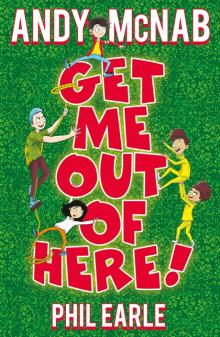 Get Me Out of Here!
Get Me Out of Here!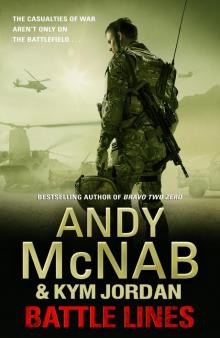 Battle Lines
Battle Lines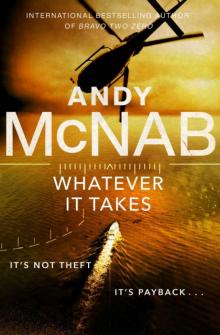 Whatever It Takes
Whatever It Takes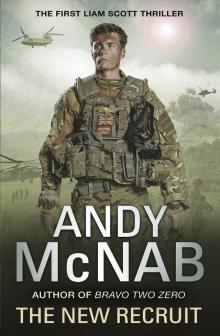 The New Recruit
The New Recruit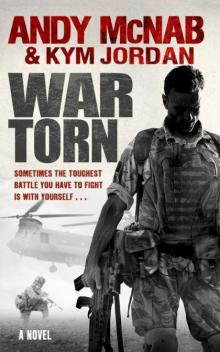 War Torn
War Torn Brute Force
Brute Force Crossfire
Crossfire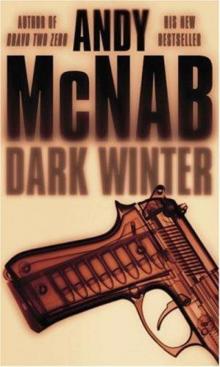 Dark Winter ns-6
Dark Winter ns-6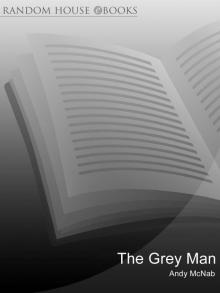 The Grey Man
The Grey Man Spoken from the Front
Spoken from the Front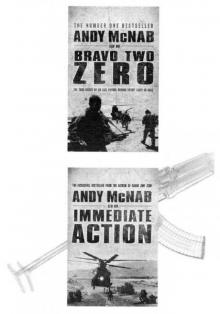 Meltdown
Meltdown Recoil
Recoil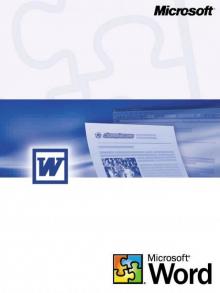 Nick Stone 1 - Remote Control.
Nick Stone 1 - Remote Control.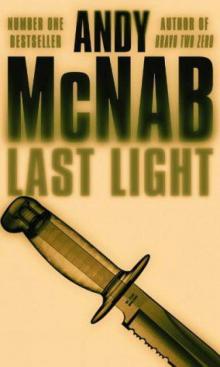 Last Light ns-4
Last Light ns-4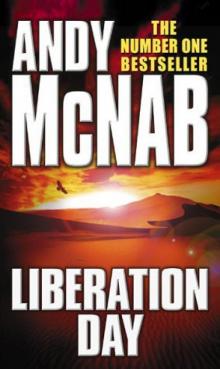 Liberation day
Liberation day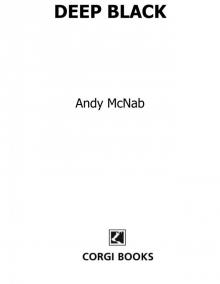 Deep Black
Deep Black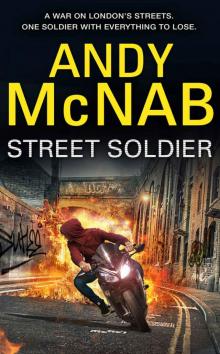 Street Soldier
Street Soldier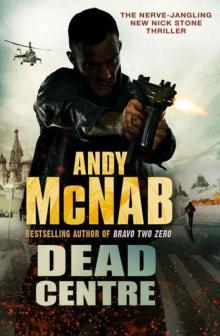 Dead Centre ns-14
Dead Centre ns-14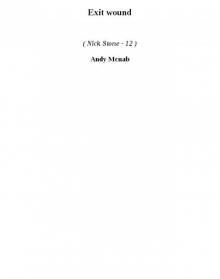 Exit wound ns-12
Exit wound ns-12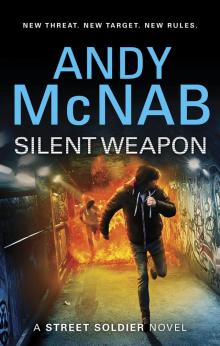 Silent Weapon
Silent Weapon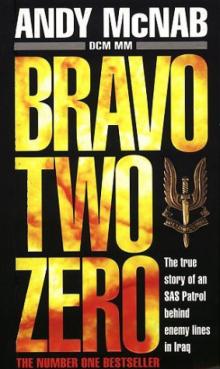 Bravo two zero
Bravo two zero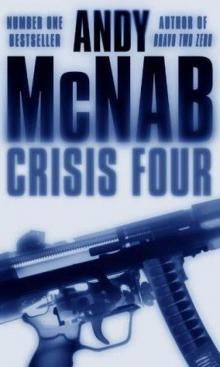 Crisis Four ns-2
Crisis Four ns-2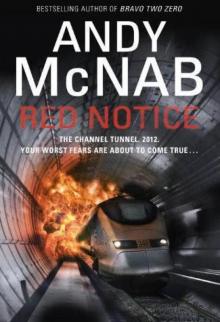 Red Notice
Red Notice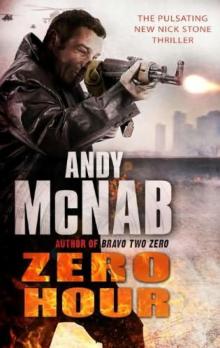 NS13 Zero Hour
NS13 Zero Hour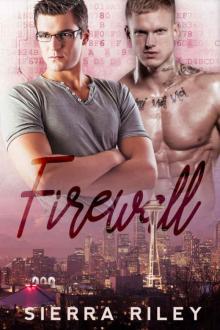 Firewall
Firewall Last Light
Last Light Aggressor
Aggressor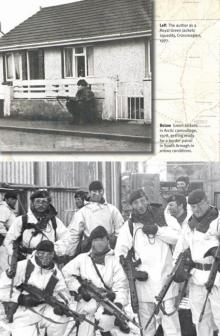 Seven Troop
Seven Troop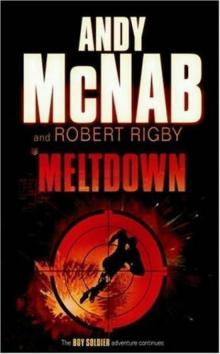 Meltdown bs-4
Meltdown bs-4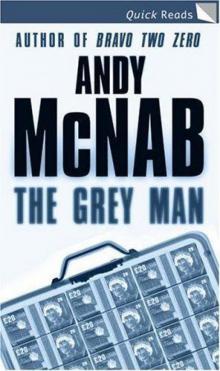 The Grey Man (quick reads)
The Grey Man (quick reads)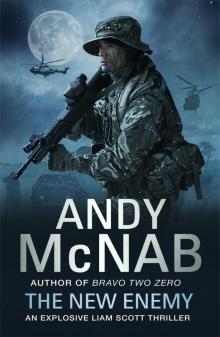 The New Enemy
The New Enemy Avenger
Avenger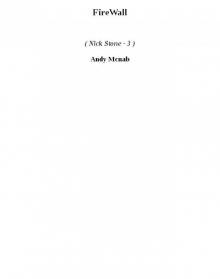 FireWall ns-3
FireWall ns-3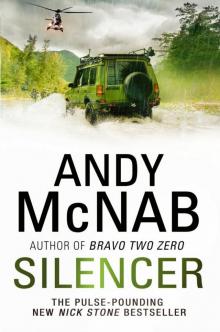 Silencer
Silencer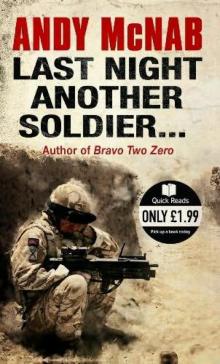 Last Night-Another Soldier…
Last Night-Another Soldier…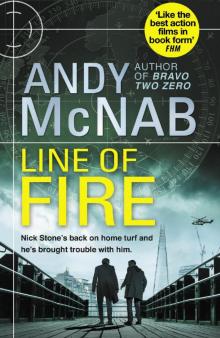 Line of Fire:
Line of Fire: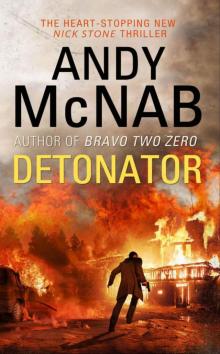 Detonator
Detonator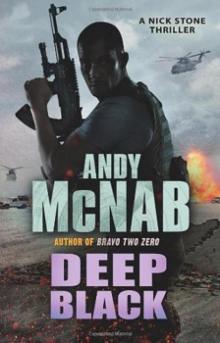 Deep Black ns-7
Deep Black ns-7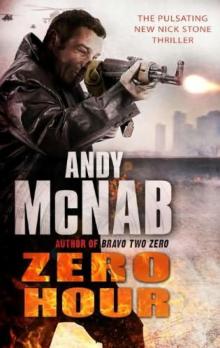 Zero Hour (2010) ns-13
Zero Hour (2010) ns-13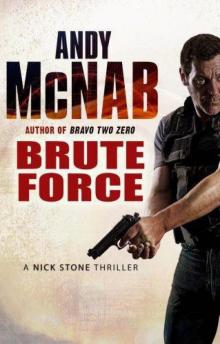 Brute Force ns-11
Brute Force ns-11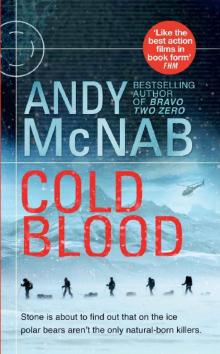 Cold Blood
Cold Blood Terminal Velocity
Terminal Velocity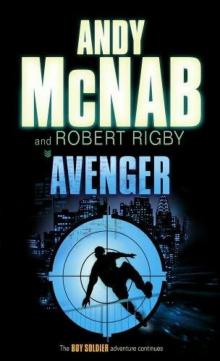 Avenger bs-3
Avenger bs-3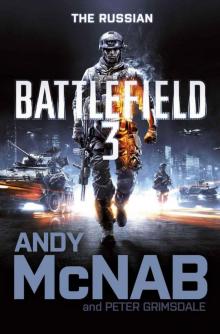 Battlefield 3: The Russian
Battlefield 3: The Russian DropZone
DropZone Zero Hour
Zero Hour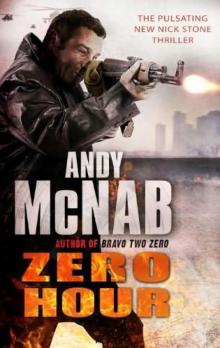 NS13 Zero Hour (2010)
NS13 Zero Hour (2010)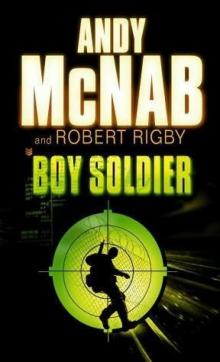 Boy soldier bs-1
Boy soldier bs-1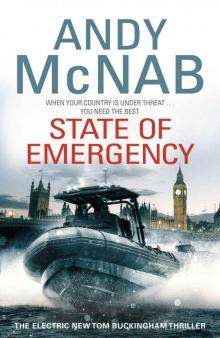 State Of Emergency: (Tom Buckingham Thriller 3)
State Of Emergency: (Tom Buckingham Thriller 3)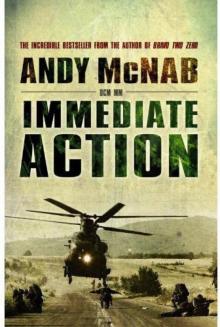 Immediate Action
Immediate Action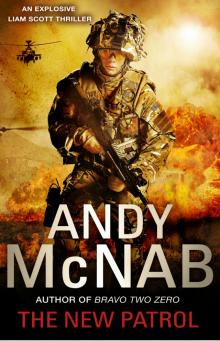 The New Patrol
The New Patrol Crisis Four
Crisis Four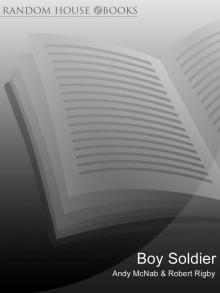 Boy Soldier
Boy Soldier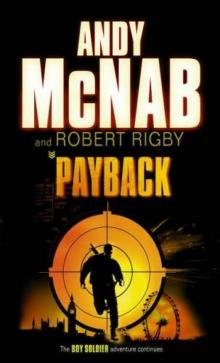 Payback bs-2
Payback bs-2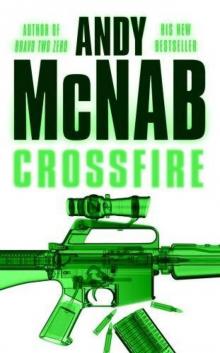 Crossfire ns-10
Crossfire ns-10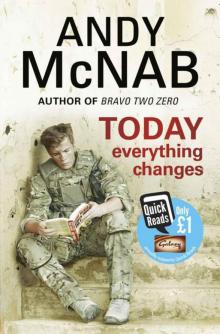 Today Everything Changes: Quick Read
Today Everything Changes: Quick Read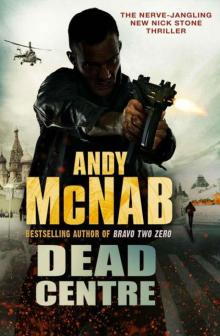 Dead Centre
Dead Centre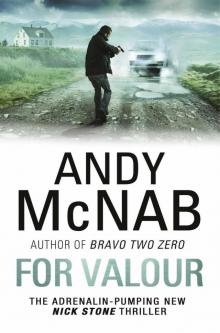 For Valour
For Valour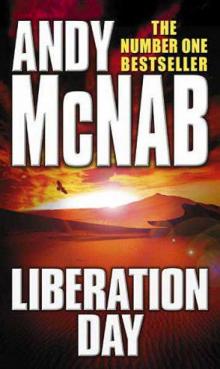 Liberation Day ns-5
Liberation Day ns-5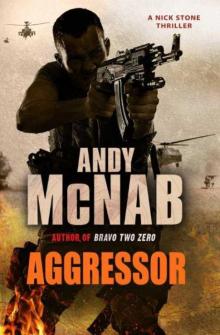 Aggressor ns-8
Aggressor ns-8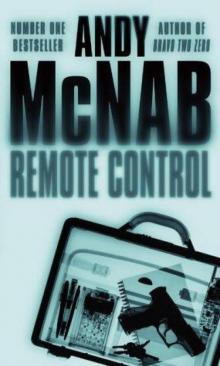 Remote Control ns-1
Remote Control ns-1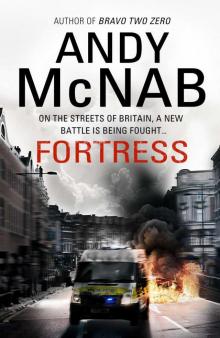 Fortress
Fortress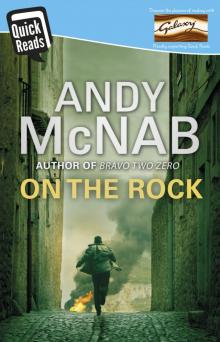 On the Rock
On the Rock Dark Winter
Dark Winter